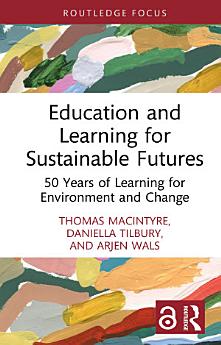Education and Learning for Sustainable Futures: 50 Years of Learning for Environment and Change
About this ebook
Spanning from the 1972 United Nations Conference on the Human Environment through to the present day, chapters examine whether our approach to education about environmental sustainability is enacting effective change. Examining the evolution of educational approaches to environmental learning, contexts, and themes, this book moves through the decades, from the 1970s until the 2020s, tracking the impact of historical events and shifting sustainability discourses within education. Through historical, research-based analyses, this book recognises patterns, trends, and countertrends that help critically (re)assess the potential of education in creating a world that is more sustainable than current scientific predictions estimate.
Proposing a set of key considerations for the future of environmental education, this accessible book will be of value to scholars, researchers, policymakers, and practitioners working within sustainability education, environmental research and policy, and teacher education more broadly.
The Open Access version of this book, available at http://www.taylorfrancis.com, has been made available under a Creative Commons Attribution-Non Commercial-No Derivatives (CC-BY-NC-ND) 4.0 license.
About the author
Thomas Macintyre is a researcher in the field of education and sustainability, specialising in transformative and participatory learning.
Daniella Tilbury is an Honorary Fellow of St Catharine’s College, University of Cambridge, a European Commission advisor on learning for the Green Transition and the UK government’s focal point at the UN Economic Commission for Europe on matters of education and environment.
Arjen Wals is a professor of Transformative Learning for Socio-Ecological Sustainability at Wageningen University where he also holds the UNESCO Chair of Social Learning and Sustainable Development.




